T32 Resident Scholars and faculty reflect on the importance of the Clinical Outcomes Research Office on their understanding and interest in research.
Jake J. Lee, MD
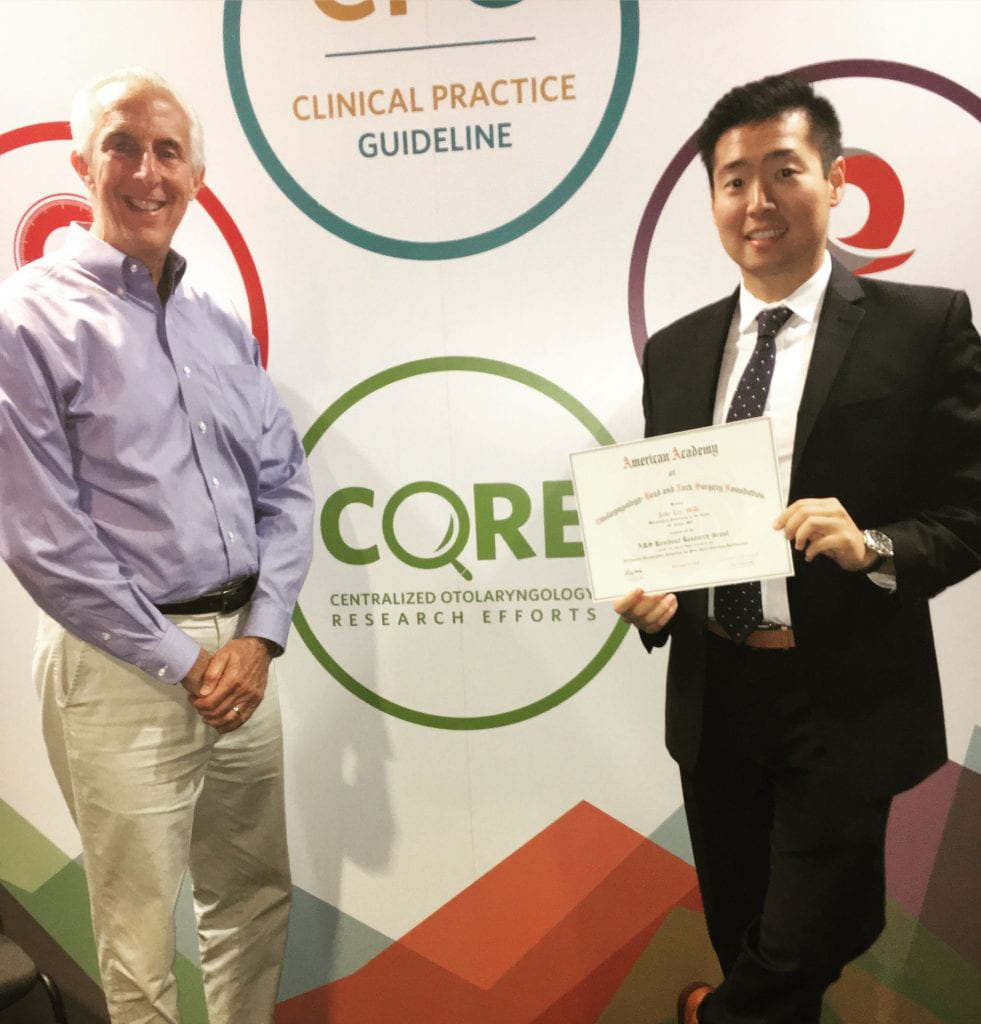
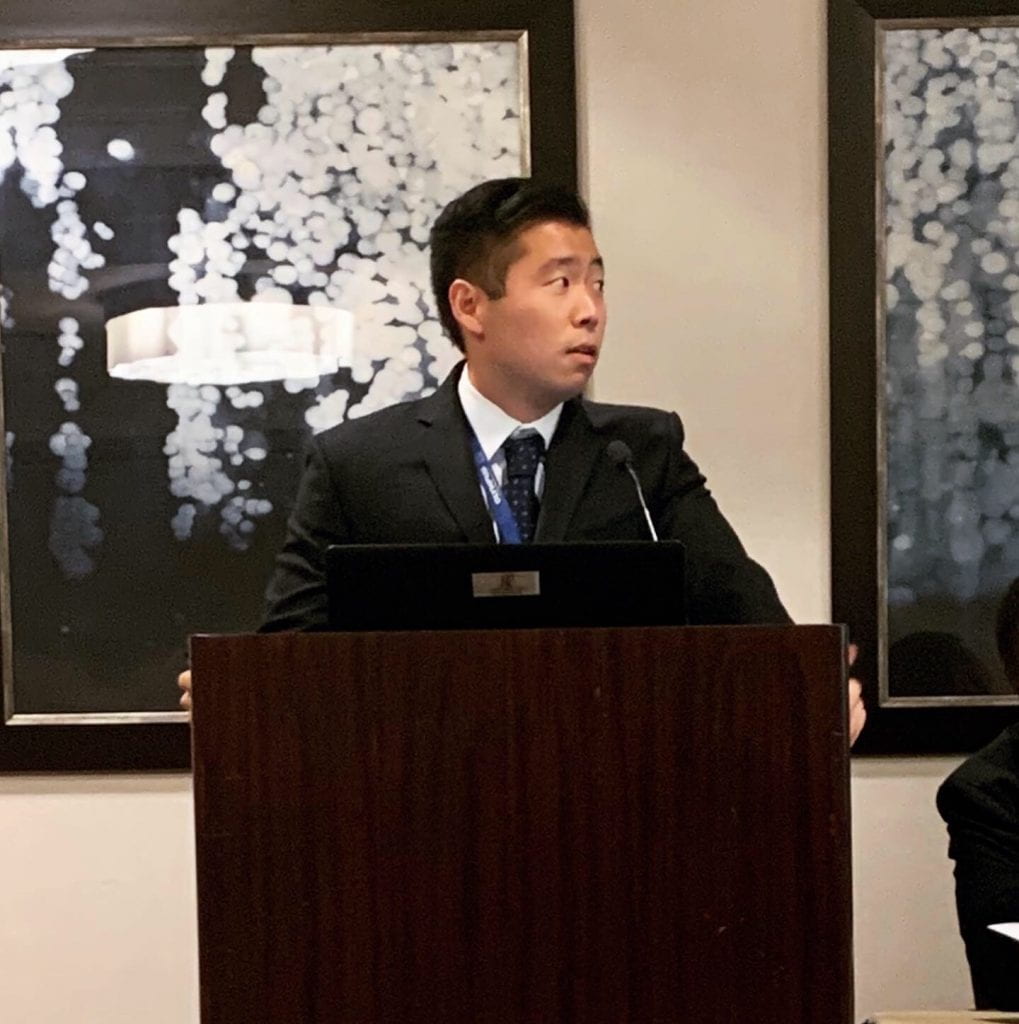
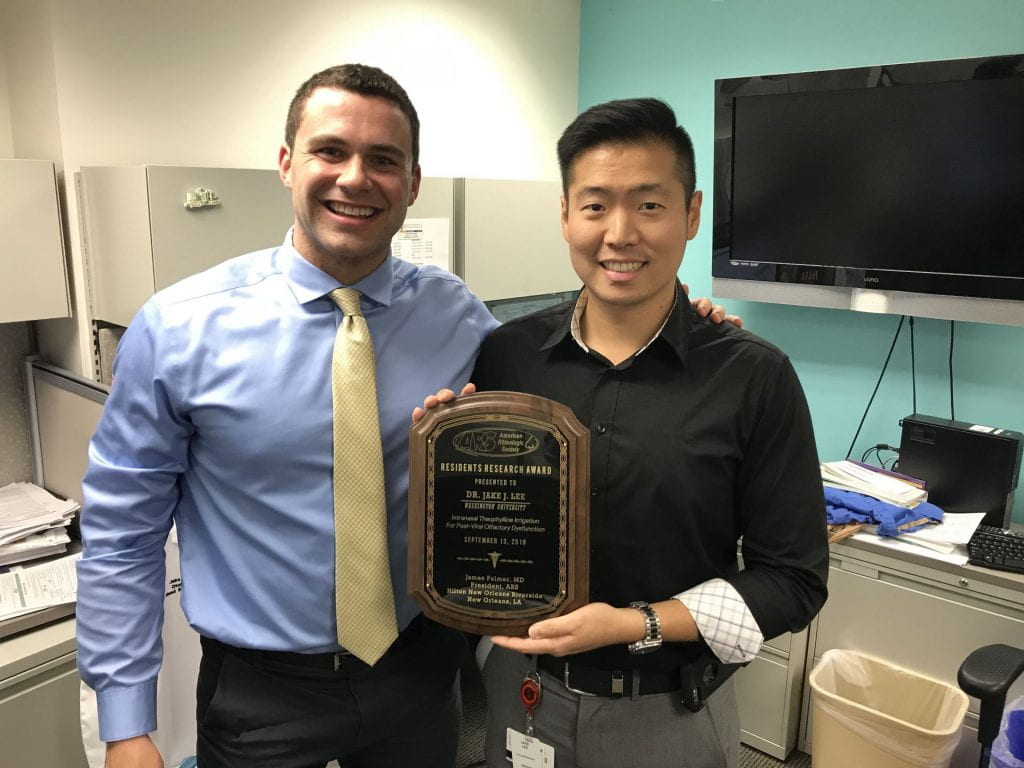
“Dr. Piccirillo and the Clinical Outcomes office have really allowed me to take my research projects from ideas to streamlined processes. This transformation is through twice-weekly meetings with Dr. Piccirillo and the entire office to brainstorm study methods, statistical teaching and assistance from Dr. Dorina Kallogjeri, IRB troubleshooting with Ms. Sara Kukuljan, monthly Academic Career Development Conferences, and funding to complete a Master’s of Science in Clinical Investigation (MSCI) degree.
“The Clinical Outcomes office was also immensely helpful in grant preparation, and without the office’s help, I most likely would not have received a Centralized Otolaryngology Research Efforts (CORE) Grant from the American Rhinologic Society.
“Even when grant funding is not sufficient, Dr. Piccirillo generously supports our projects with other research funds so our ideas can become reality. I am confident I can utilize the new knowledge and skillsets I have obtained during my two T32 years to be a productive physician-scientist throughout my career.” – Jake J. Lee, MD
Parul Sinha, MD
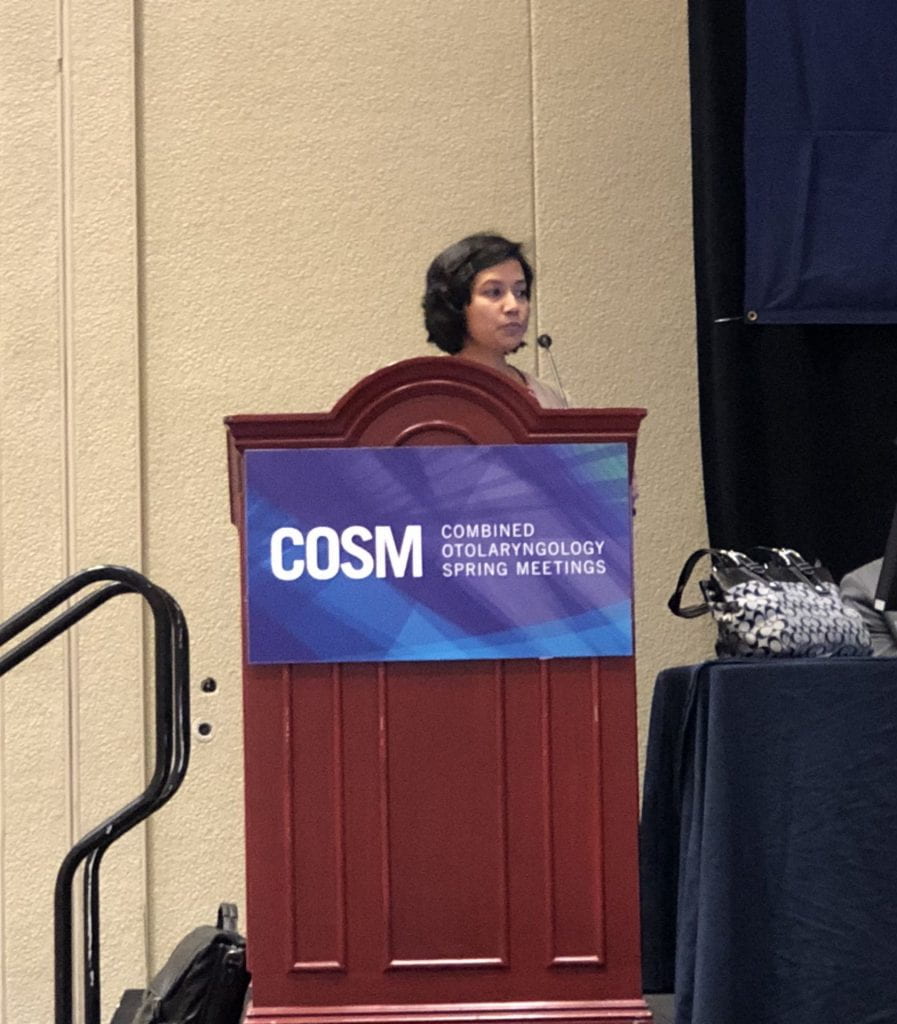
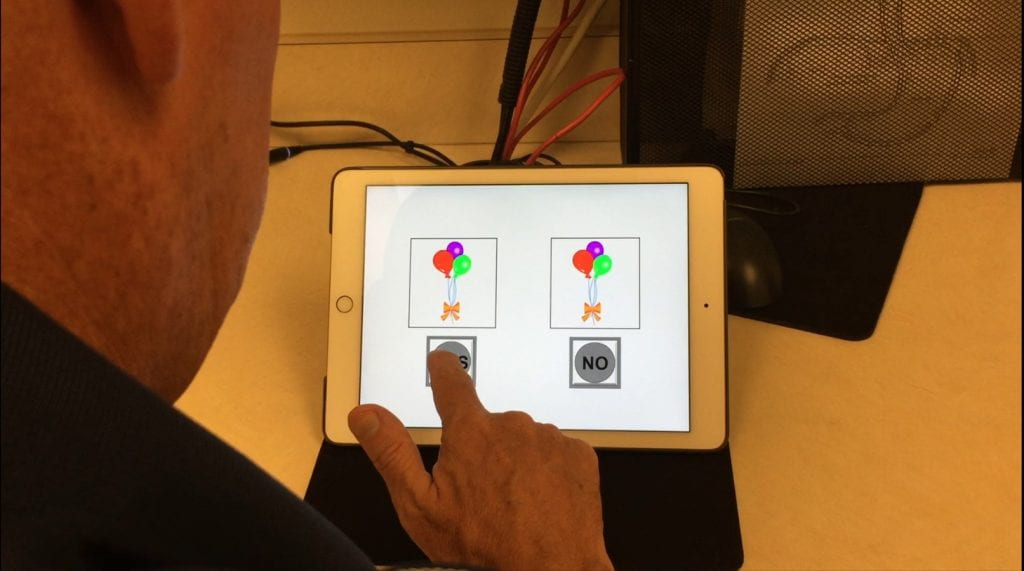
“Clinical outcomes research is of immense interest to me. The research supervision and mentorship that I received under Dr. Piccirillo during my T32 post-doctoral years has strongly enabled my skills as a physician-scientist.
“My understanding of the various nuances and intricacies of clinical research design and interpretation vastly advanced as did my appreciation of the collaborative, multi-disciplinary, research culture.
“As a T32 scholar, I investigated the impact of treatment modalities including chemoradiation on patient-perceived and objective cognition in patients with newly-diagnosed oropharygneal carcinoma using the innovative, NIH-developed instruments of PROMIS and NIH toolbox.
“The assistance provided by Dr. Piccirillo-led Clinical Outcomes Office team, Dr. Kallogjeri and Ms. Kukuljan, right from the study conception to completion, was instrumental towards accomplishing my research goals. I especially valued the weekly lab meetings that fostered an environment of team work while providing a platform to brainstorm new ideas and troubleshoot obstacles.
“I published my research in a peer-reviewed journal and presented it at institutional and national scientific meetings where it was well-received, and considered an important yet understudied and ill-defined aspect of head and neck cancer survivorship. I look forward to planning future studies to further investigate this topic and design clinical outcomes research within the breadth of our clinical practice.” – Parul Sinha, MD
Otolaryngology faculty also reflect on the valuable support from the Clinical Outcomes Research Office
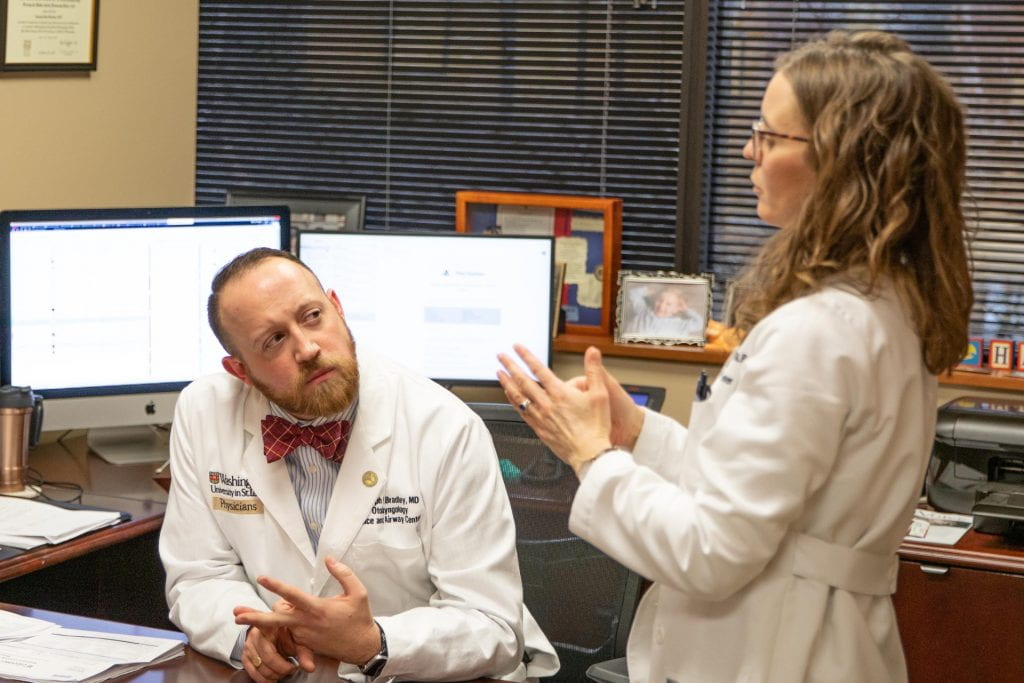
Joseph Bradley, MD
“The Clinical Outcomes Office in our department has been instrumental with helping me perform high quality research. Sara Kukuljan’s expertise in research protocol and compliance makes it easy for me to achieve and maintain IRB approval. Dr. Dorina Kallogjeri’s epidemiological and statistical services provide me with the ability to appropriately design my retrospective and prospective studies for the highest quality work.” – Joseph Bradley, MD, FACS
Lisa Davidson, PhD
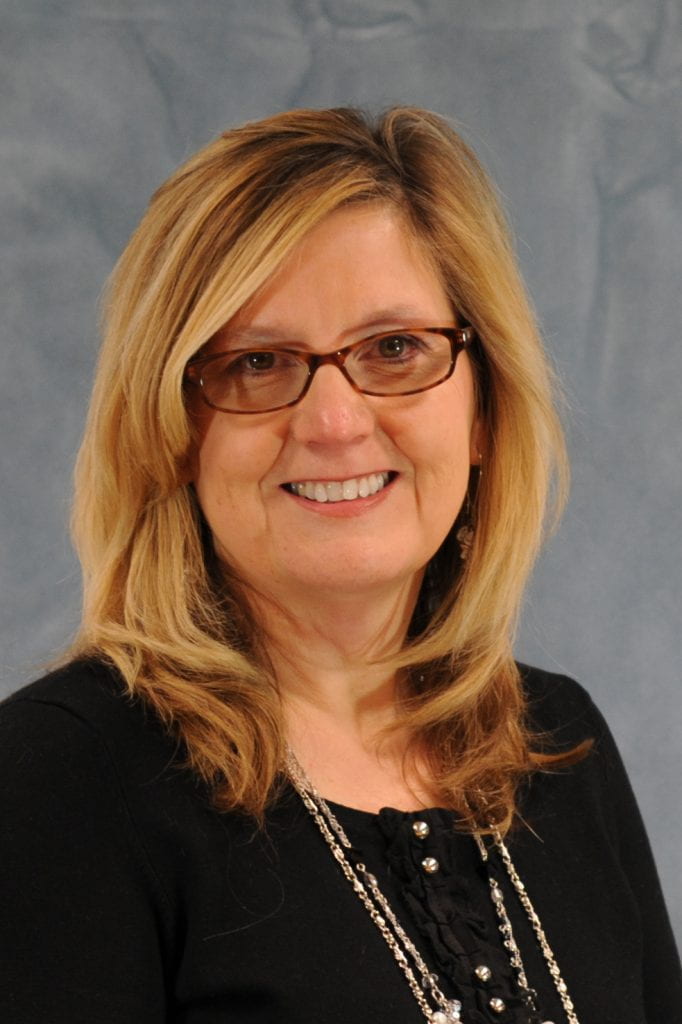
“The overarching goal of our research program is to use a multidisciplinary approach to understand the audiological, perceptual, cognitive and linguistic mechanisms that facilitate spoken language and literacy development in children with sensory devices [both hearing aids (HAs) and cochlear implants (CIs)]. Our research team collaborates with clinical programs and schools for the deaf across the United States. Our current project examines the independent contributions of early acoustic hearing via audiovisual perception and binaural listening skills, to communication, academic and social functioning in adolescent CI recipients. Specifically, we seek to determine the long-term benefits of early device recommendations related to bimodal and bilateral CI use. During our prior RO1 funding period, we established empirical guidelines that facilitate clinical recommendations relating to the level and duration of acoustic hearing that should be considered for bimodal or bilateral CI use.
“Sara Kukuljan is critical to our team as we conduct behavioral research in collaboration with audiology clinics and schools for the deaf across the United States. These collaborative efforts require that we coordinate between our own Institutional Review Board (IRB) and IRBs at various sites to maintain strict adherence to protection of human subjects for research. Sara provides guidance and instruction to all areas related to compliance with IRB guidelines. This includes assisting us when we are developing new research protocols as well making necessary modifications for existing protocols.
“Dorina Kallogjeri provides invaluable guidance related to the implementation of statistical methods for our ongoing studies. She has conducted statistical analyses for several of our projects. More importantly, she has been integral to our efforts related to transitioning our data analysis practices from null hypothesis significance testing to estimation based on effect sizes, confidence intervals, and meta-analysis. These procedures allow for greater rigor and reproducibility in our research.”
– Lisa Davidson, PhD